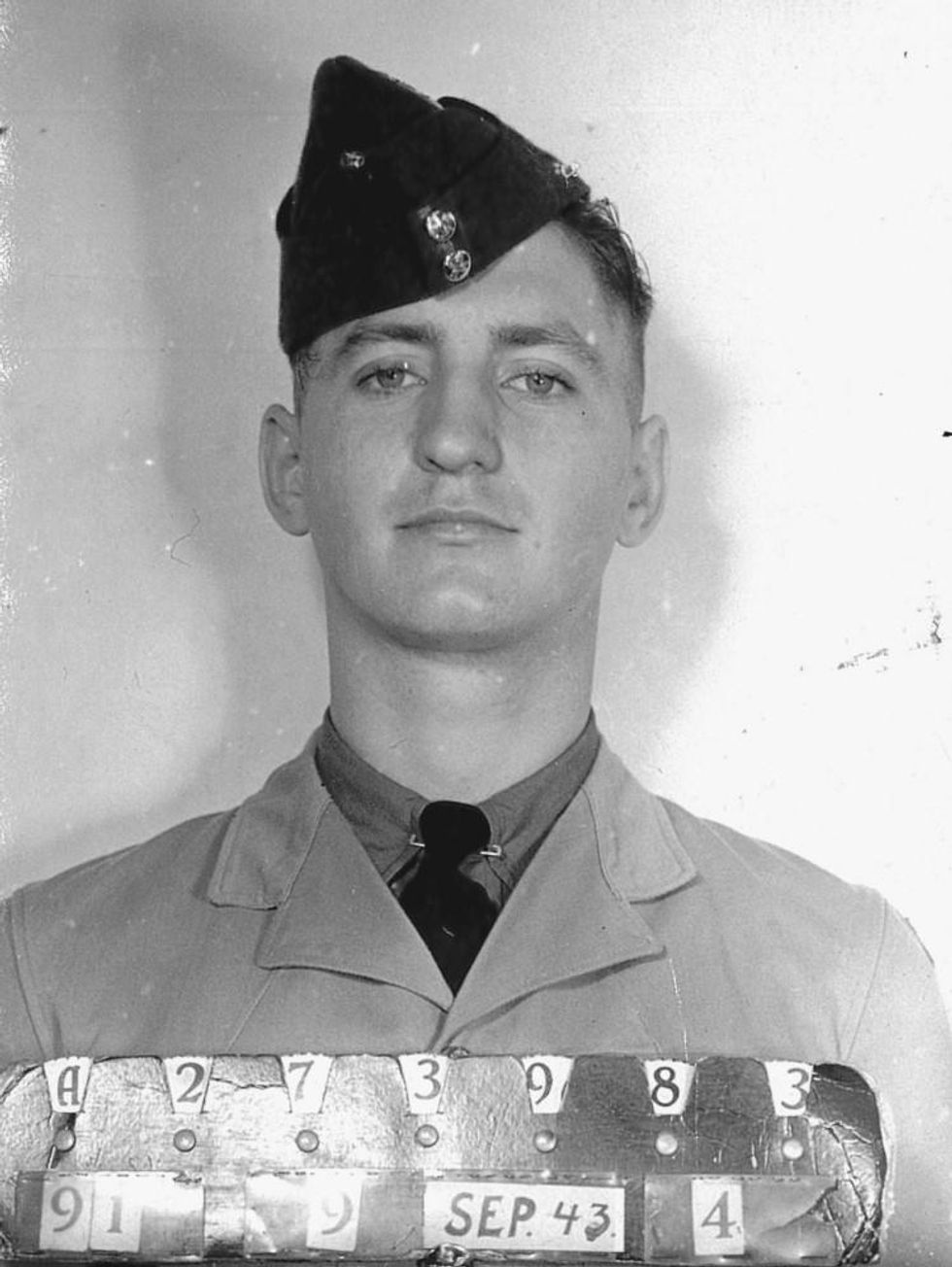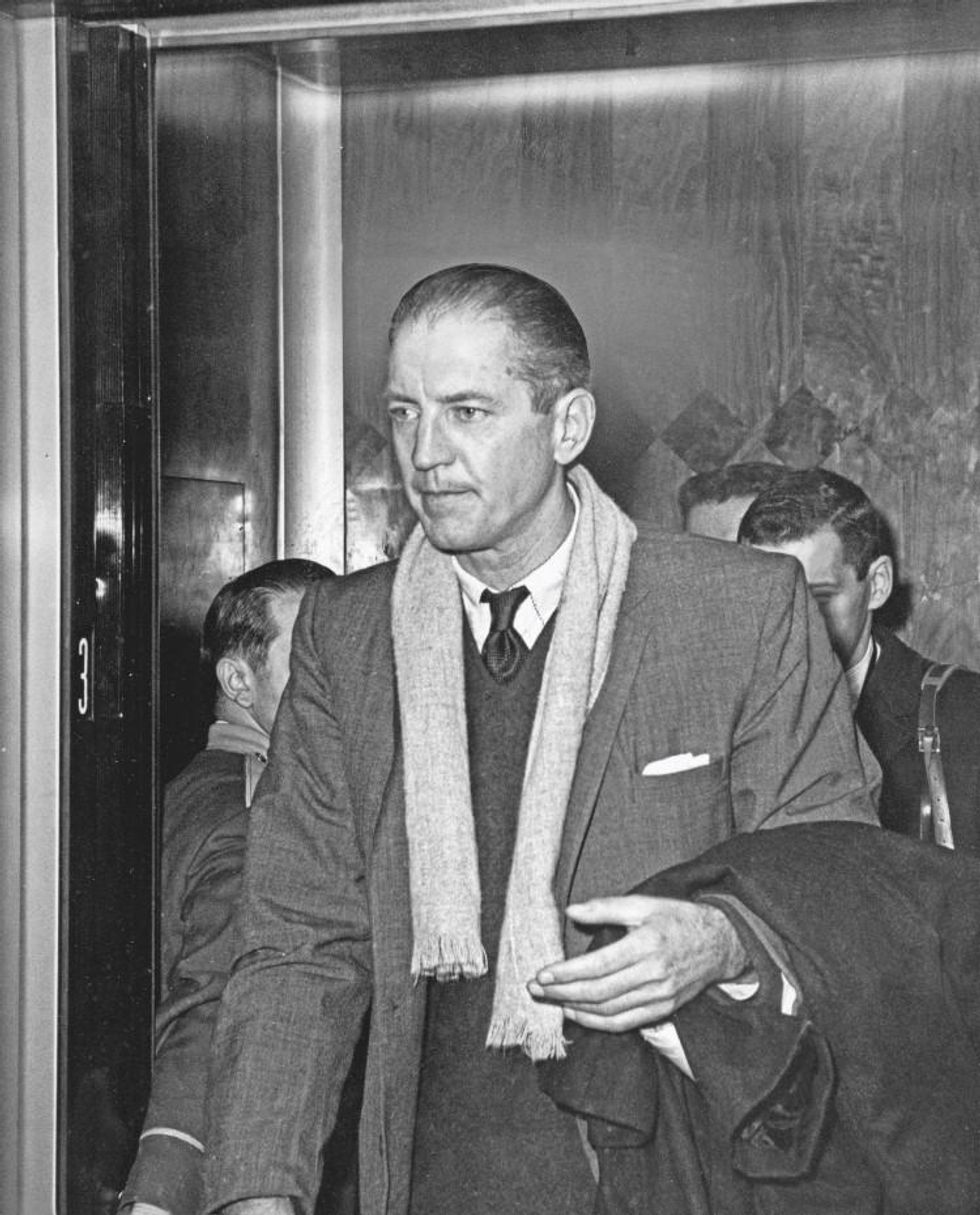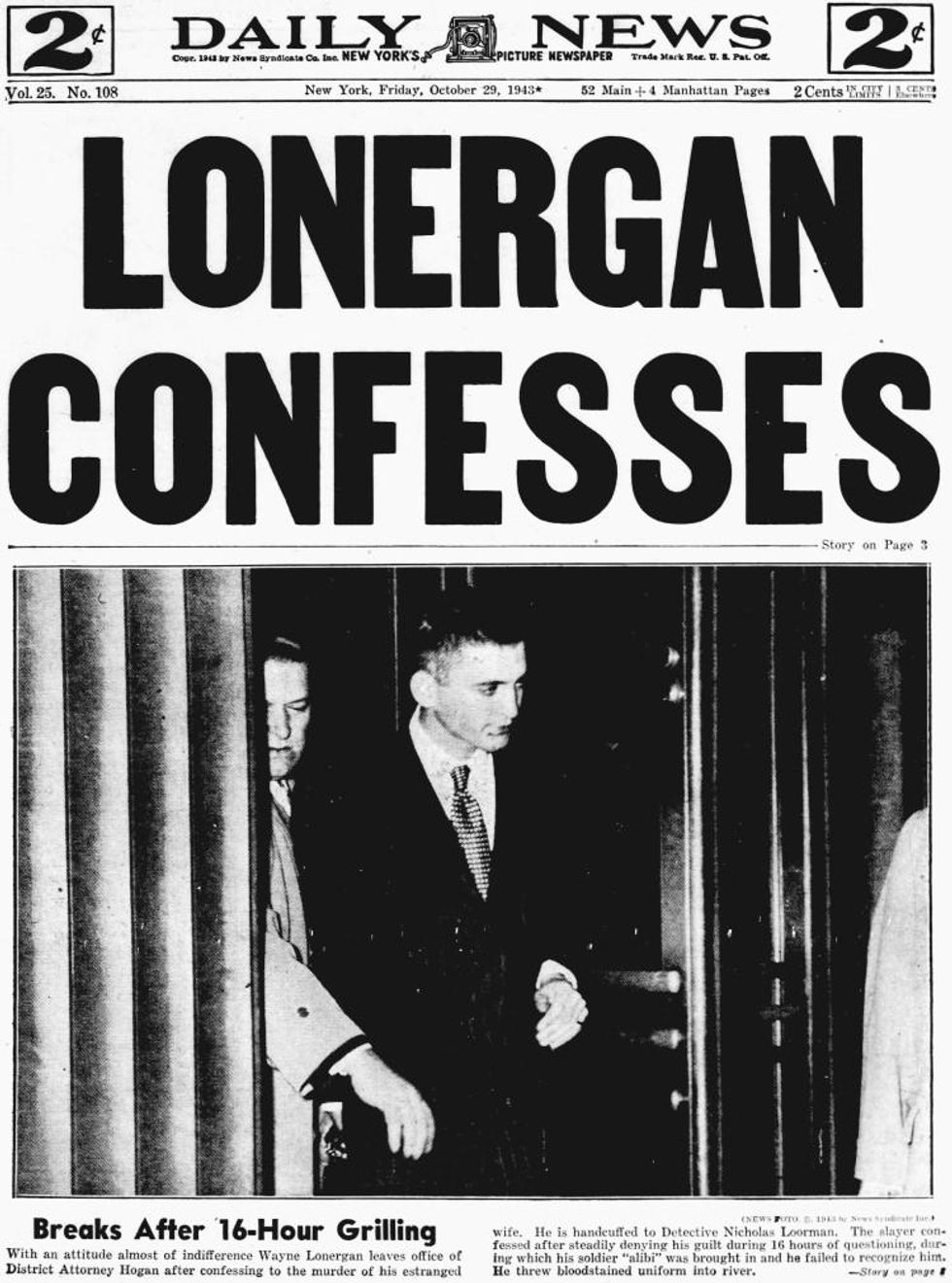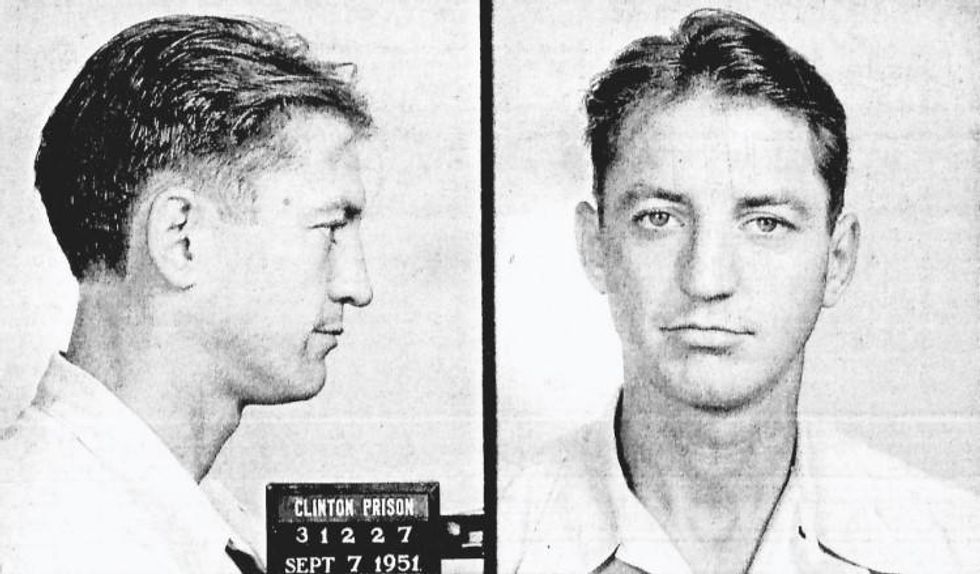Did this Queer Man Kill His Wife?
03/24/21
deliciousdiane
By continuing to use our site, you agree to our Privacy Policy and Terms of Use.

Patricia Burton Lonergan was an attractive 22-year-old party girl and heiress to the Burton beer fortune, worth nearly 10 million dollars back in the early 1940s. Her working class husband, Wayne Lonergan, was most likely a gay or bisexual man. Patricia's father, the wealthy William O. Burton, had been his lover and patron, says Allan Levine, author of The Details are Unprintable: Wayne Lonergan and the Sensational Cafe Society Murder. Shortly before his own death, Papa Burton encouraged Wayne to marry Patricia. The young, hard-partying couple was part of Toronto's wealthy, hard-partying elite -- especially Patricia -- but the marriage was on the rocks after their son was born. During their subsequent estrangement, Lonergan, who previously was turned away from service in the U.S. Army duty (deemed 4-F for homosexuality) was now serving in the Royal Canadian Air Force and visiting his son and wife while on leave. It was during one of those leaves that Patricia was murdered. Levine's newest book, The Details are Unprintable: Wayne Lonergan and the Sensational Cafe Society Murder, which is one of a trio of new books involving queer men and crime, delves into the trial of Wayne Lonergan who was accused and convicted of murdering his wife. He likely did it, says Levine, but may have been convicted because of the homophobia of the jury more than any evidence. Levine speaks with The Advocate to talk about the case.
You and Hamilton Darby Perry, who wrote a much earlier book, both looked at the trial transcripts and news accounts of the Patricia Burton Lonergan murder but come to really different conclusions. Why do you think that is?
My book is primarily based on the District Attorney's large case file (see my note in the book on page 195) so I have information that Perry did not--such as the medical examiner's report and the police and DA affidavits about how Lonergan was treated. And I was better able to understand Lonergan's personality and identity issues. I think in this case the documents and historical perspective allowed me to reach different conclusions. Additionally, Perry interviewed Lonergan in the early 1970s, who as I note was a consummate liar. Though the two had a bit of a falling out, Perry did view the case in part as Lonergan told him about it, which I believe influenced how he perceived what had happened. See the story of Lonergan's CBC interview in 1965 on page 182 to understand more Lonergan's mindset and his ability to twist the truth.
Young Wayne Lonergan (left) courtesy Getty Images.

Lonergan said his uniform was stolen by a soldier he met. I felt like the soldier stealing the uniform could actually happen during hookup; I know guys on Grindr still get robbed sometimes, so it's easy to imagine a hookup or trick stealing your suit while you're asleep after sex. But you think that was really just a desperate plea that speaks to his conflicts about his sexual identity.
The story of the soldier was a convenient alibi he came up with but which had lots of holes in it. I think the point is that when he was pressed as he was about being drafted by the US army or when having to come up with what happened to his uniform, he immediately came up with an excuse related to homosexuality. That to me is telling. I am quite convinced, as the police and DA lawyers were and which he himself conceded, that this story was fabricated. Plus, there is that witness who saw him carrying a duffel bag, presumably with the bloody uniform, toward the East River.
Lonergan in his Royal Canadian military uniform (left). Photo courtesy Details are Unprintable.

Do you think being a gay man yourself influenced how you read Lonergan and his guilt? Why or why not?
I can't answer this question as I am in fact not a gay man. I've been married to my wife Angie for 38 years. (We have two adult children and three grandchildren with a fourth on the way.) I have however researched and written much over the years in books and articles about morality, prejudice, discrimination and human rights (see the list of my other books). That is another reason why this case interested me so much. If Lonergan's sexual identity had not been a factor, I don't believe the case would have attracted as much attention as it did.
How's that different than how the jury read him after being exposed to the sort of tabloid treatment of his sexuality in the courtroom and media?
Without going into too much detail: Lonergan was convicted by the jury for two reasons. First, as I note, his confession freely given in my view was so detailed that he could not have come up with something so elaborate. There is no reason to believe he was not in this instance and under the circumstances telling the truth. But given the lack of any physical evidence, which today, might cause a jury to have doubts, the intense publicity about Lonergan's sexuality no doubt contributed to a preconceived and negative bias about him in the minds of a typical 1940s male heterosexual jury, whose members subscribed to the anti-gay attitudes of the era.

Lonergan's wife (and victim) was a big part of Cafe Society and the indulgence and glitterati that was going on during World War II and just after the Great Depression. Tell me about that culture. Was it a reaction to those events among the elite or simply a case of affluent people clueless to what was going on with the rest of the world?
Cafe society was initially a product and reaction to Prohibition, largely a failure as you know. Wealthy individuals and movie stars who enjoyed the finer things in life and were self-indulgent were not about to be curtailed by such a law. If you think about it, the same attitude exists today with people who refuse to abide or curtail their lives and follow public health rules during COVID. It happens in Canada, too, where I live but not on the scale as it is in the U.S. Once Prohibition ended in 1933, the clubs in New York became even more popular. And the war -- which only started in late 1941 in the U.S. -- was not going to stop these people from thoroughly enjoying themselves as much as possible. They rationalized it and felt entitled to do as they pleased -- and had the money to live that lifestyle. As far as my research indicated, none of them felt guilty about dancing and drinking the night away because of the war.
Lonergan in 1965 at the Royal York Hotel in Toronto after his release from prison (left).

I was surprised there wasn't antisemitism aimed at Patricia during the trial. Did the family's affluence shield them from widespread antisemitism at the time?
Yes, that is interesting. I believe it was more that her family was so assimilated and that is how she was brought up. William and his brother had changed their name to something so "American" -- Burton -- that it would not immediately reveal their roots, which was William Burton's intention when he did it. And certainly, Patricia or her mother were not openly Jewish or practiced their religion. For example, I imagine her son was circumcised but I never found any references to it happening. New York was fairly diverse then with a large Jewish population so in the 1940s antisemitism was somewhat toned downed there compared with other parts of the U.S. Patricia had a lot of friends and most of them were not Jewish. She seems to have been an accepted member of New York "high society." As well, the trial was focused on Lonergan and whether Patricia was Jewish or not did not become a factor as far as I can tell.
Patricia Burton Lonergan (left) and her father, William O. Burton. Wayne Lonergan had allegedly been William's lover and patron and it was the older Burton who introduced his daughter to Wayne. Daily News photo courtesy of Allan Levine's Details are Unprintable.

Did you walk away believing Wayne was bisexual, having a relationship with both the father then the daughter as well as hookups? Or did you come away believing he was likely gay and using Patricia as a beard and a benefactor?
My view -- backed by the evidence I read -- is that Wayne was torn about his sexual identity since he was a young man, like many men of that era when homosexuality was so disdained. As I have noted, the issue comes up time and again in his life. I'm quite sure that he did have a brief and intimate relationship with Patricia's father William, in part so he could enjoy the good life which he craved so much. During this period, we know now that many gay men married, had children, but still remained secretly gay. I don't know if Wayne was gay or bisexual, probably the latter. He did spend his last years with another woman, the Canadian actress Barbara Hamilton, who I was told by people who know both her and Lonergan, that she loved him.

How long did the book take you to complete and what was the most challenging part?
Before this project, I had written a few large and sweeping narratives that required much, much research and several years of work. This book and story appealed to me because it was somewhat more contained. Once I got access and a digital copy of the DA's case files from the New York Municipal Archives, the book began to take shape. I did one trip to New York to undertake more research at the NY Public Library where I could examine NY newspapers that I could not find online as well as visit the locales mentioned in the book--including where the murder happened on E. 51st Street. The entire project was about 16 to 18 months from start to finish. I enjoyed the research and the writing. A lot of time it is difficult to find information about individuals in a story like this, but the files had all of the biographical information I needed -- including things like Patricia's financial information so that was an enormous help. I suppose the most challenging part is that though I believe strongly that Lonergan committed the murder -- and I believe his confession bears that out -- I can't say that with 100 per cent certainty.

Was there something that really surprised you in your research?
Not really. I had known much about anti-homosexual attitudes of the era before I started researching the book. But I had not delved into the issue as much as I did once I began. It is rather shocking the extent to which the government and law prosecuted individuals. It was as bad, or worse, as the way suspected Communists were treated, the other great bogeyman of the era.
The 1951 mugshot of Wayne Lonergan at Clinton Prison. Courtesy Allan Levine, Details are Unprintable.